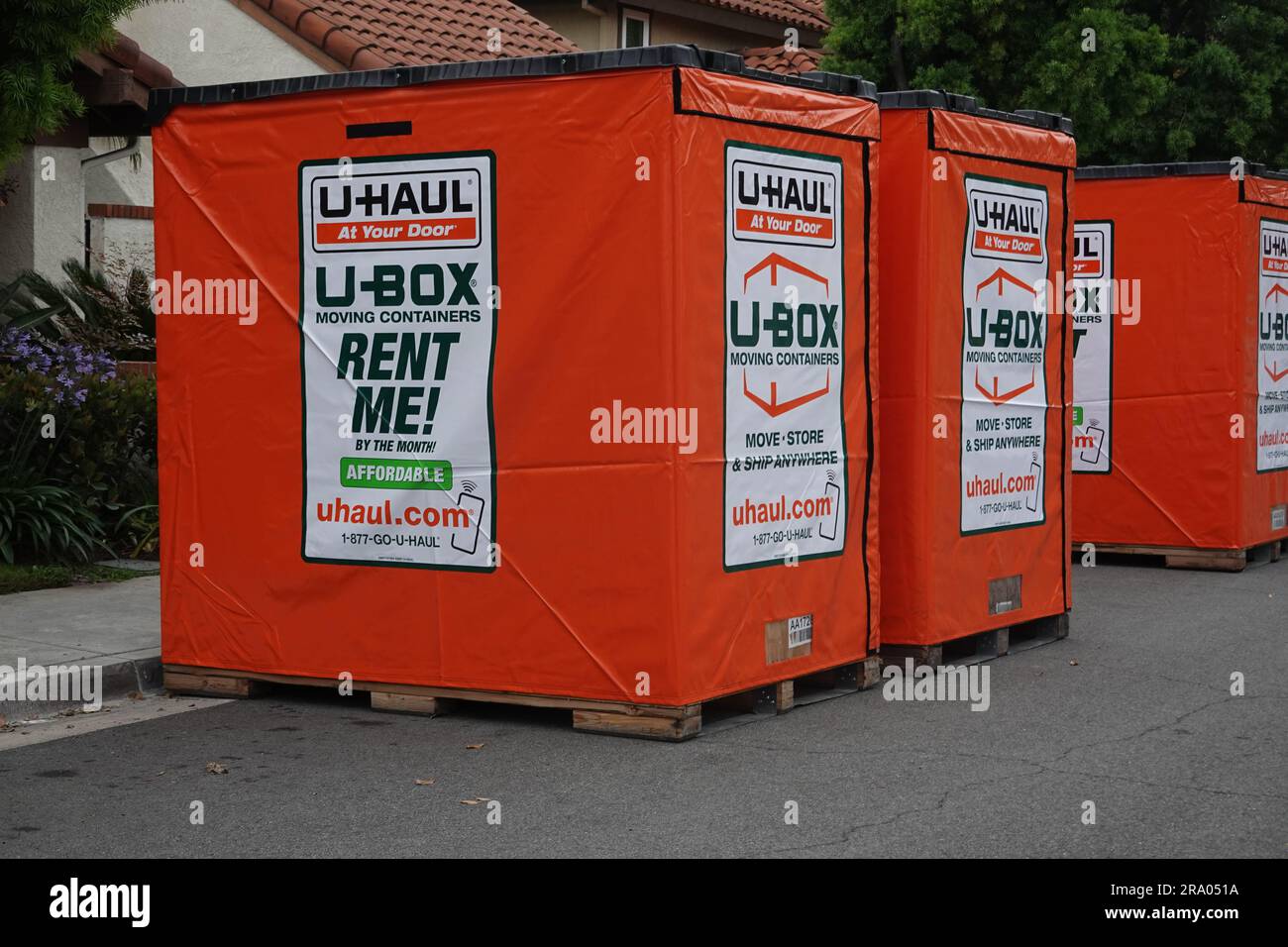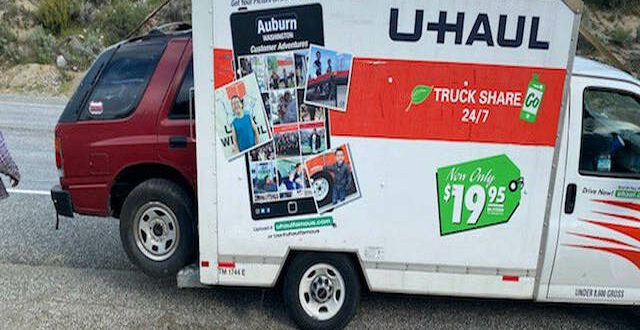U-Haul Trailer Rental Cost: Your Comprehensive Guide to Affordable Moving
U-Haul Trailer Rental Cost: Your Comprehensive Guide to Affordable Moving cars.truckstrend.com
Moving, whether across town or across the country, often involves transporting belongings efficiently and affordably. For many, U-Haul trailers emerge as a practical and cost-effective solution. However, understanding the intricacies of U-Haul trailer rental costs is crucial to budgeting effectively and avoiding unexpected expenses. From daily local rates to complex one-way pricing, a multitude of factors influence the final bill. This comprehensive guide aims to demystify U-Haul trailer rental costs, empowering you with the knowledge to make informed decisions and secure the best deal for your moving needs.
Understanding the U-Haul Trailer Rental Cost Model
U-Haul Trailer Rental Cost: Your Comprehensive Guide to Affordable Moving
U-Haul’s pricing structure for trailers isn’t a one-size-fits-all model. It’s a dynamic system influenced by several key variables, primarily differentiating between "local" and "one-way" rentals. Grasping these fundamental distinctions is the first step in understanding your potential expenses.
Local Rentals: These are typically for shorter moves where you pick up and return the trailer to the same U-Haul location. Local rentals are generally priced at a flat daily rate, making them highly predictable and often very affordable for short-term hauling needs.
One-Way Rentals: Designed for longer distances or interstate moves, one-way rentals involve picking up a trailer at one U-Haul location and dropping it off at another. The pricing for one-way rentals is significantly more complex and is calculated based on a combination of factors including the distance of your move, the specific route, the duration allowed for the rental, trailer availability, and demand in both the pick-up and drop-off locations. This dynamic pricing means that identical trailers might have different one-way costs depending on the exact dates and locations.
Beyond the local vs. one-way dichotomy, several other elements contribute to the final cost:
- Trailer Size and Type: Larger trailers and specialized vehicle transport trailers naturally command higher prices.
- Duration: While local rentals are daily, one-way rentals come with a set number of allowed days. Exceeding this can incur late fees.
- Availability and Demand: During peak moving seasons (e.g., summer, end of month), prices can increase due to higher demand.
- Additional Equipment: Costs for hitches, wiring, or moving supplies are separate from the trailer rental.
- Insurance Options: U-Haul offers various protection plans that add to the total cost.
- Taxes and Fees: Standard taxes and environmental fees will be applied.
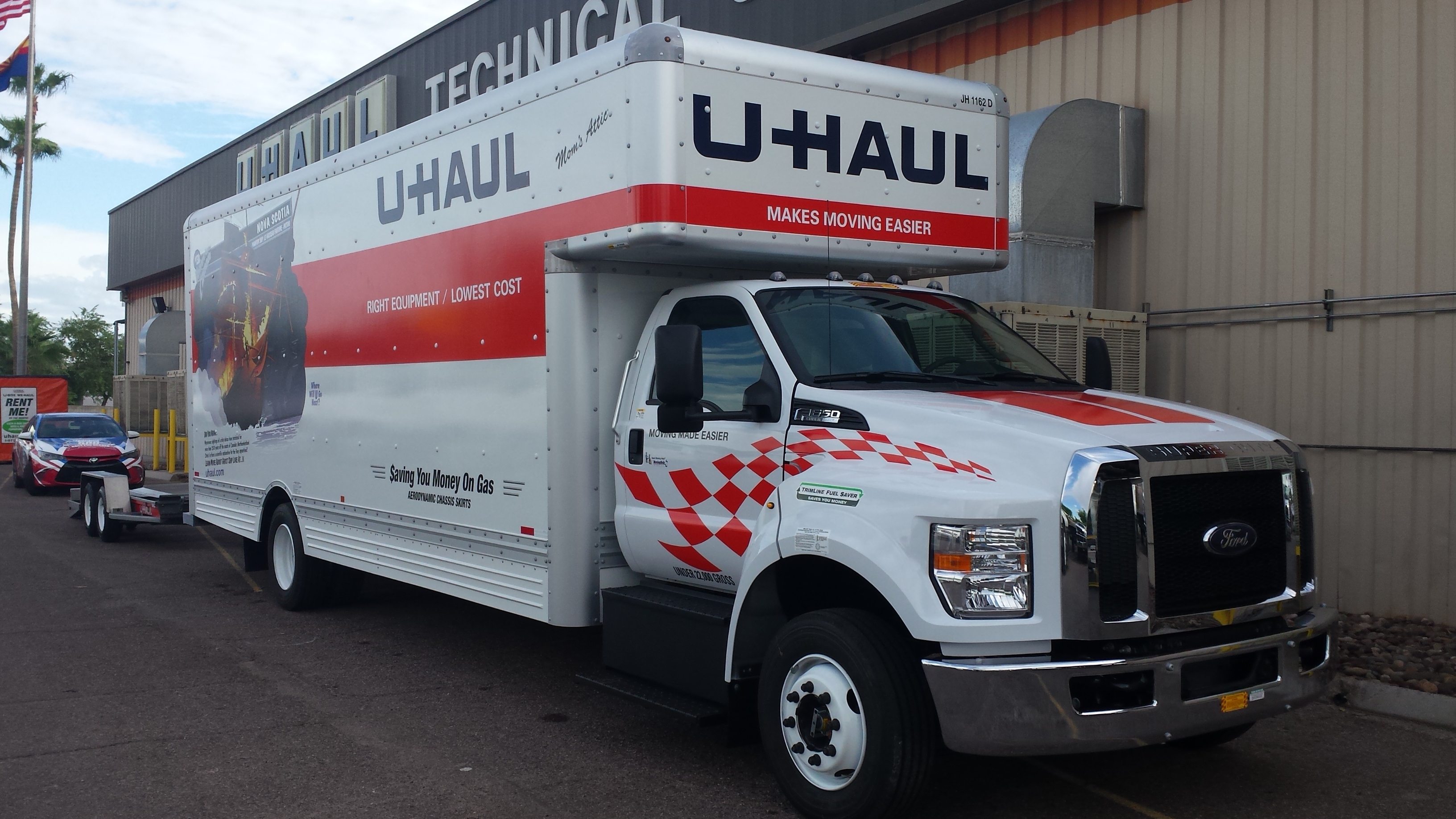
Types of U-Haul Trailers and Their Typical Costs
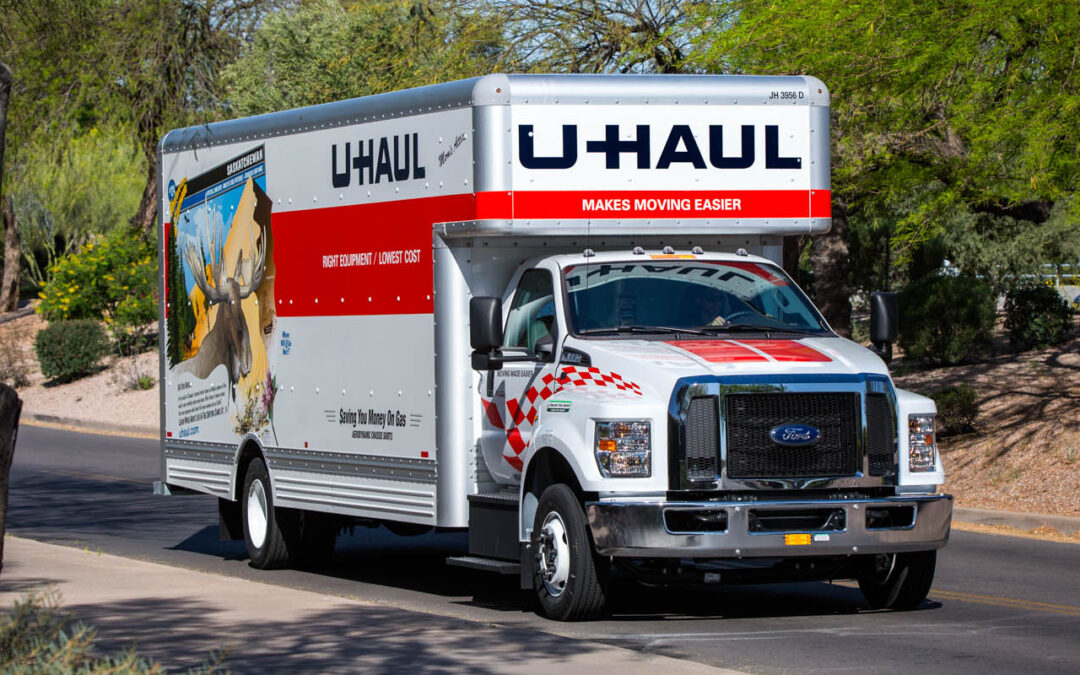
U-Haul offers a diverse fleet of trailers designed to meet various hauling requirements. Each type comes with its own general price range, reflecting its size, capacity, and specialized function.
Cargo Trailers (Enclosed)
These are the most common type, ideal for protecting your belongings from weather and theft.
- 4×8 Cargo Trailer: The smallest enclosed option, perfect for dorm rooms, small apartments, or extra storage.
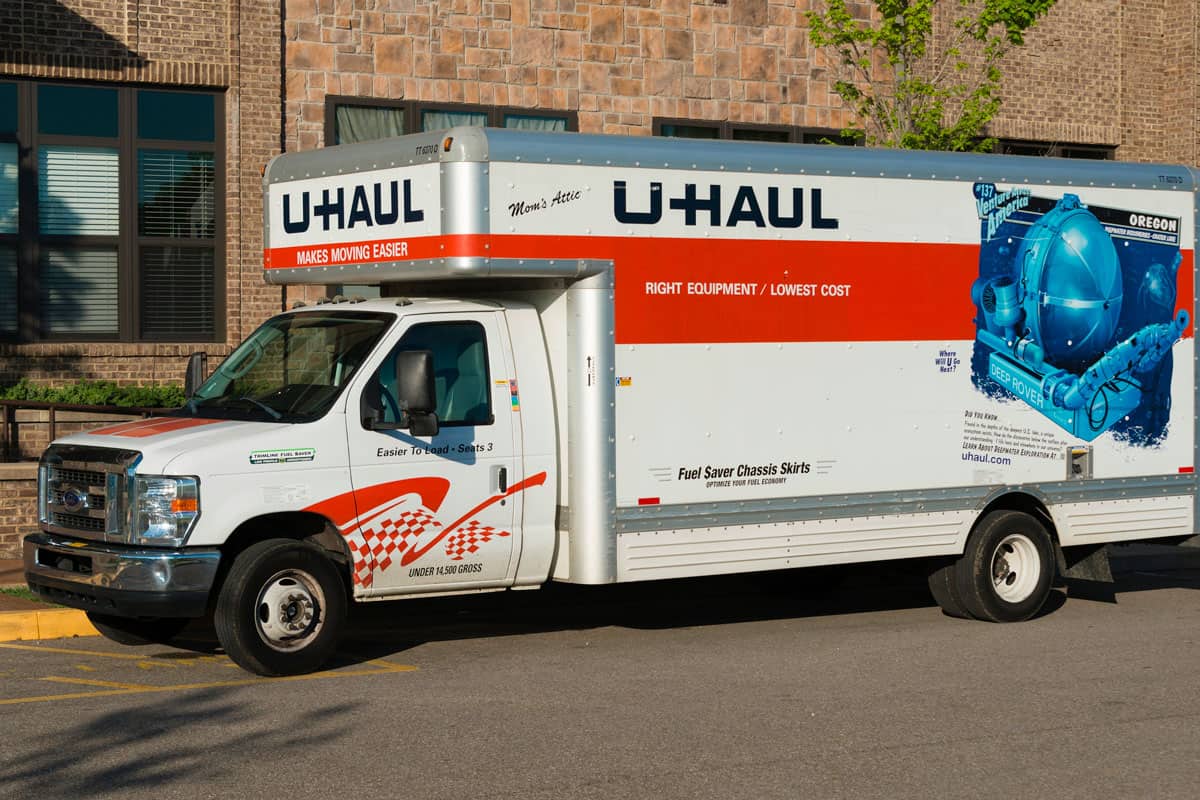
- Local Rental: Typically starts around $14.95 – $19.95 per day.
- One-Way Rental: Can range from $150 to $500+, depending on distance and demand.
- 5×8 Cargo Trailer: A popular choice for studio apartments or a few rooms of furniture.
- Local Rental: Typically starts around $19.95 – $24.95 per day.
- One-Way Rental: Can range from $200 to $700+, depending on distance and demand.
- 5×10 Cargo Trailer: Suitable for 1-2 bedroom apartments.
- Local Rental: Typically starts around $29.95 – $34.95 per day.
- One-Way Rental: Can range from $250 to $900+, depending on distance and demand.
- 6×12 Cargo Trailer: The largest enclosed trailer, ideal for 2-3 bedroom homes or substantial loads.
- Local Rental: Typically starts around $34.95 – $44.95 per day.
- One-Way Rental: Can range from $300 to $1200+, depending on distance and demand.
Utility Trailers (Open)
These open trailers are excellent for hauling odd-shaped items, landscaping materials, or construction debris. They don’t offer protection from elements.
- 4×7 Utility Trailer: Smallest open trailer, good for light loads.
- Local Rental: Typically starts around $14.95 – $19.95 per day.
- One-Way Rental: Less commonly available for one-way, but if offered, costs are variable.
- 5×8 Utility Trailer: A versatile open trailer.
- Local Rental: Typically starts around $19.95 – $24.95 per day.
- 5×9 Utility Trailer with Ramp: Offers easier loading for equipment or ATVs.
- Local Rental: Typically starts around $24.95 – $29.95 per day.
- 6×12 Utility Trailer (Single/Double Axle): Largest utility trailer, for heavier or bulkier items.
- Local Rental: Typically starts around $29.95 – $39.95 per day.
Vehicle Transport Trailers
For moving cars, motorcycles, or other vehicles.
- Auto Transport: Designed to tow a car completely off the ground.
- Local Rental: Rarely available for local, as they’re primarily for long-distance moves.
- One-Way Rental: Can range from $400 to $1000+, depending on vehicle type, distance, and demand.
- Tow Dolly: Lifts only the front two wheels of the towed vehicle off the ground. More affordable than an Auto Transport.
- Local Rental: Rarely available for local.
- One-Way Rental: Can range from $200 to $600+, depending on vehicle type, distance, and demand.
- Motorcycle Trailer: Specifically designed for safely transporting motorcycles.
- Local Rental: Typically starts around $24.95 – $29.95 per day.
- One-Way Rental: If available, costs are variable.
Important Note on Pricing: The "typical starting ranges" for one-way rentals are highly dynamic. U-Haul’s pricing algorithm considers many factors, and the exact quote will be provided at the time of booking based on your specific dates, pick-up, and drop-off locations. Local rental rates are generally more stable but can still vary slightly by location.
Local vs. One-Way Rentals: A Cost Comparison
The choice between a local and one-way rental is perhaps the most significant factor influencing your U-Haul trailer rental cost.
Local Rentals:
- Pricing: Characterized by simple, flat daily rates. For instance, a 5×8 cargo trailer might cost $19.95 per day.
- Best For:
- Short-distance moves (e.g., across town, within a 50-mile radius).
- Hauling large items (appliances, furniture) that don’t fit in your vehicle.
- Home improvement projects (picking up materials, hauling debris).
- Temporary storage needs.
- Advantages: Predictable cost, very affordable for short periods, easy pick-up/drop-off.
- Disadvantages: Requires returning to the original location, not suitable for long-distance moves.
One-Way Rentals:
- Pricing: Significantly more complex and generally much higher than local rates. The cost is a calculated quote for the entire trip, not a daily rate, and includes a set number of rental days.
- Best For:
- Cross-country or inter-state relocations.
- Moving to a new city far from your current location.
- Advantages: Convenience of dropping off at a different location, ideal for long-distance moves.
- Disadvantages: Higher cost, less flexibility with rental duration (U-Haul determines allowed days), prices fluctuate significantly based on demand and route.
For example, a 6×12 cargo trailer might cost $39.95 for a local daily rental. The same trailer for a 1,000-mile one-way move could easily cost $500-$800 or more, including a few days of rental time. Always get a direct quote from U-Haul for one-way moves, as online estimates can vary.
Factors That Can Influence Your Final Bill
Beyond the base rental cost, several additional factors can impact your total expenditure. Being aware of these can help you budget more accurately.
- Insurance Options (Protection Plans): U-Haul offers various coverage plans like SafeTow® and SafeTrip®.
- SafeTow®: Covers damage to the U-Haul trailer.
- SafeTrip®: Offers supplemental medical and life coverage for the renter and passengers, as well as cargo protection.
These plans are optional but highly recommended, as your personal auto insurance might not fully cover rental trailers. Costs typically range from $8-$25 depending on the plan and trailer type.
- Hitch and Wiring Installation: If your personal vehicle isn’t equipped for towing, U-Haul can sell and install hitches, ball mounts, and wiring harnesses. These are significant additional costs, potentially ranging from $150 to $500 or more depending on your vehicle.
- Taxes and Environmental Fees: Standard sales tax and U-Haul’s environmental fee will be added to your total.
- Late Return Fees: U-Haul strictly adheres to the return time. Returning a trailer late, especially for local rentals, can result in additional daily charges or penalties. For one-way rentals, exceeding the allowed days can incur substantial daily fees.
- Damage Charges: If the trailer is returned with new damage not documented at pick-up, you will be liable for repair costs, unless you opted for a protection plan that covers it.
- Cleaning Fees: While not common, returning an excessively dirty trailer could result in a cleaning fee.
- Fuel Costs (for your towing vehicle): Don’t forget to factor in the increased fuel consumption of your towing vehicle when pulling a heavy trailer, especially for long distances.
- Moving Supplies: U-Haul also sells moving boxes, packing tape, blankets, and other supplies, which are separate costs.
Tips for Saving Money on Your U-Haul Trailer Rental
Optimizing your U-Haul trailer rental cost involves smart planning and strategic decisions.
- Book in Advance: Especially for one-way rentals or during peak moving seasons (summer, holidays, end of month), booking weeks or even months ahead can secure better rates and ensure availability.
- Be Flexible with Dates and Locations: If your schedule allows, check prices for different pick-up and drop-off dates or even slightly different U-Haul locations within the same area. Sometimes, a slight adjustment can yield significant savings.
- Choose the Right Size Trailer: Don’t pay for unused space. Estimate your belongings accurately. Using U-Haul’s online space estimator or consulting with a representative can help. Conversely, don’t under-size and need to make multiple trips, as this negates savings.
- Confirm Your Vehicle’s Towing Capacity: Before renting, ensure your personal vehicle has the adequate towing capacity, a proper hitch, and functioning wiring. Discovering you need upgrades last minute can be costly and delay your move. U-Haul’s website has a helpful "Towing Guide."
- Return on Time: Avoid late fees by returning the trailer promptly at the agreed-upon time. If you anticipate delays, contact U-Haul immediately.
- Inspect Thoroughly Before Departure: Before leaving the U-Haul lot, meticulously inspect the trailer for any existing damage (scratches, dents, tire condition, lights). Document everything with photos or video and ensure it’s noted on your contract to avoid being charged for pre-existing issues.
- Consider Your Own Insurance: Check with your personal auto insurance provider. Some policies may extend coverage to rental trailers, potentially allowing you to decline U-Haul’s supplemental protection plans. However, always verify the extent of coverage.
- Pack Smartly: Distribute weight evenly within the trailer to ensure stable towing and prevent potential damage to the trailer or your belongings.
U-Haul Trailer Rental Cost Price Table (Typical Ranges)
Please note: U-Haul’s one-way rental prices are highly dynamic and depend on specific routes, dates, and demand. The "One-Way Rental (Starting Range)" below represents typical starting points and can fluctuate significantly. Always obtain a direct quote from U-Haul for the most accurate pricing for your specific needs. Local daily rates are generally more stable.
| Trailer Type | Size | Local Rental (Typical Daily Rate) | One-Way Rental (Typical Starting Range)* | Primary Use Case |
|---|---|---|---|---|
| Cargo Trailers | ||||
| Enclosed | 4×8 | $14.95 – $19.95 | $150 – $500+ | Small moves, dorms, extra items |
| Enclosed | 5×8 | $19.95 – $24.95 | $200 – $700+ | Studio/1-bed apts, small loads |
| Enclosed | 5×10 | $29.95 – $34.95 | $250 – $900+ | 1-2 bed apts, medium loads |
| Enclosed | 6×12 | $34.95 – $44.95 | $300 – $1200+ | 2-3 bed homes, large loads |
| Utility Trailers | ||||
| Open | 4×7 | $14.95 – $19.95 | (Less common for one-way) | Light hauling, debris |
| Open | 5×8 | $19.95 – $24.95 | (Less common for one-way) | Landscaping, light equipment |
| Open with Ramp | 5×9 | $24.95 – $29.95 | (Less common for one-way) | ATVs, lawnmowers, easy loading |
| Open | 6×12 | $29.95 – $39.95 | (Less common for one-way) | Large/bulky items, construction materials |
| Vehicle Transport Trailers | ||||
| Tow Dolly | N/A | (Rarely for local) | $200 – $600+ | Towing front wheels of a vehicle |
| Auto Transport | N/A | (Rarely for local) | $400 – $1000+ | Towing entire vehicle off ground |
| Motorcycle Trailer | N/A | $24.95 – $29.95 | (Variable if available for one-way) | Safely transporting motorcycles |
Note: One-way rental costs are highly variable based on route, demand, and duration. These are illustrative ranges only.
Frequently Asked Questions (FAQ) About U-Haul Trailer Rental Cost
Q1: Can I rent a U-Haul trailer without also renting a U-Haul truck?
A1: Yes, absolutely! You can rent a U-Haul trailer independently as long as your personal vehicle meets the towing requirements (proper hitch, wiring, and towing capacity).
Q2: Is U-Haul trailer insurance mandatory?
A2: No, U-Haul’s protection plans (like SafeTow®) are optional. However, it’s highly recommended to consider them, as your personal auto insurance may not fully cover rental trailers or the cargo inside. Always check with your own insurance provider first.
Q3: What happens if I return the trailer late?
A3: For local rentals, you’ll typically be charged for an additional day. For one-way rentals, exceeding the allowed number of days can result in significant daily late fees. It’s always best to contact U-Haul if you anticipate a delay.
Q4: Do I need a special driver’s license to tow a U-Haul trailer?
A4: In most states and provinces, a standard driver’s license is sufficient for towing U-Haul trailers, as their trailers are generally designed to be within the weight limits for non-commercial licenses. However, always verify the specific regulations in your state or province.
Q5: How do I know if my vehicle can tow a specific U-Haul trailer?
A5: U-Haul has an excellent online "Towing Guide" where you can input your vehicle’s make, model, and year. It will then tell you which trailers your vehicle can safely tow. You’ll also need a properly installed hitch and working electrical wiring.
Q6: Are there any hidden fees with U-Haul trailer rentals?
A6: U-Haul is generally transparent with its pricing. The main "extra" costs are usually the optional insurance, sales tax, environmental fees, and any necessary hitch/wiring installations if your vehicle isn’t already equipped. Late return fees and damage charges are also potential additions if conditions are not met.
Q7: What’s the difference in cost between an Auto Transport and a Tow Dolly?
A7: A Tow Dolly is generally less expensive than an Auto Transport. A Tow Dolly lifts only the front wheels of your vehicle, leaving the back wheels on the ground. An Auto Transport carries the entire vehicle off the ground. The price difference reflects the additional equipment, weight, and capacity of the Auto Transport.
Conclusion
Navigating the U-Haul trailer rental cost landscape doesn’t have to be daunting. By understanding the core distinctions between local and one-way rentals, the various trailer types, and the factors that influence your final bill, you can approach your moving or hauling project with confidence. U-Haul trailers offer a flexible and often highly cost-effective solution for transporting your belongings. With careful planning, smart choices regarding trailer size and rental type, and adherence to rental terms, you can ensure your U-Haul experience is both efficient and budget-friendly. Always obtain a direct quote for the most accurate pricing, and remember that a little research goes a long way in securing the best deal for your moving needs.
